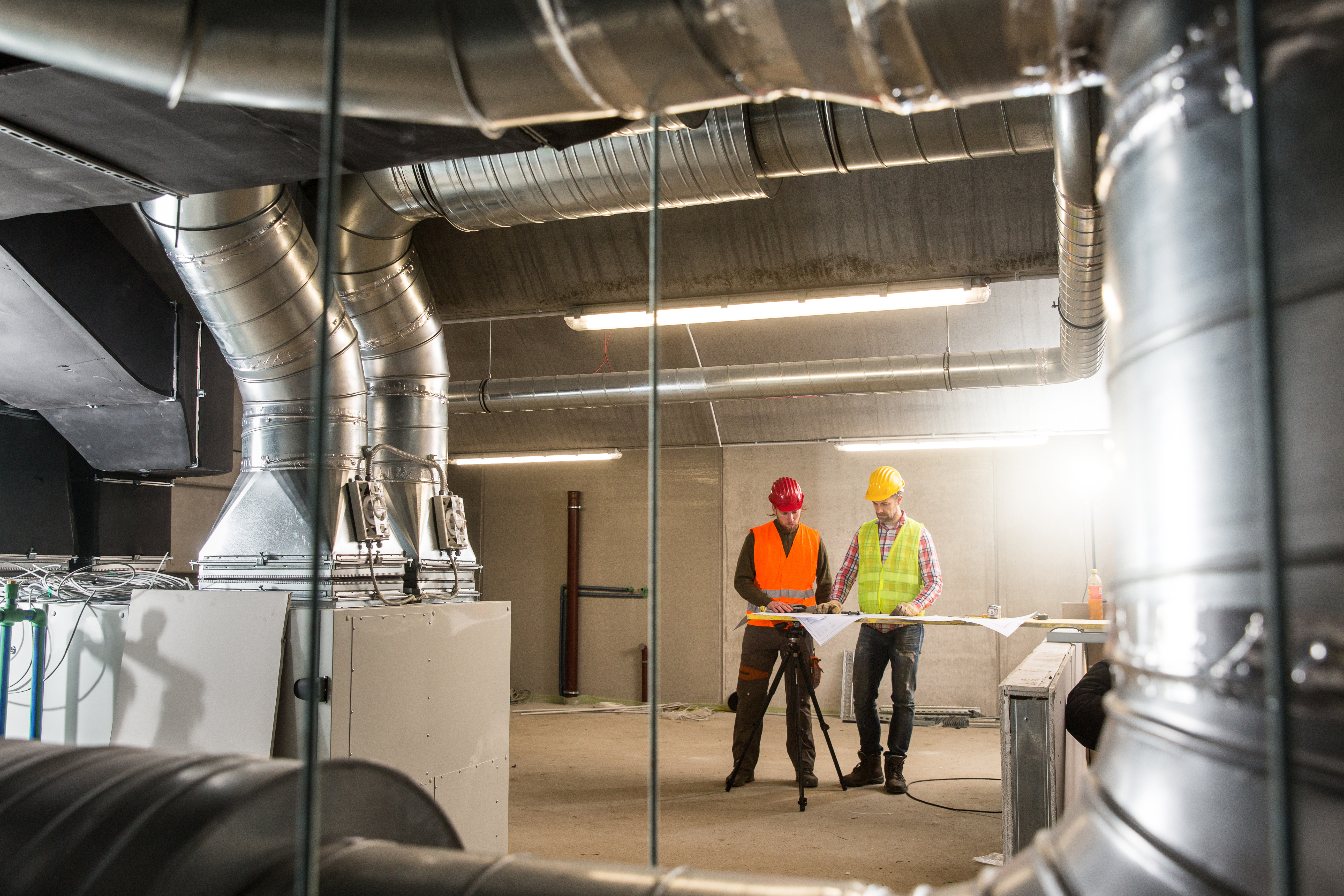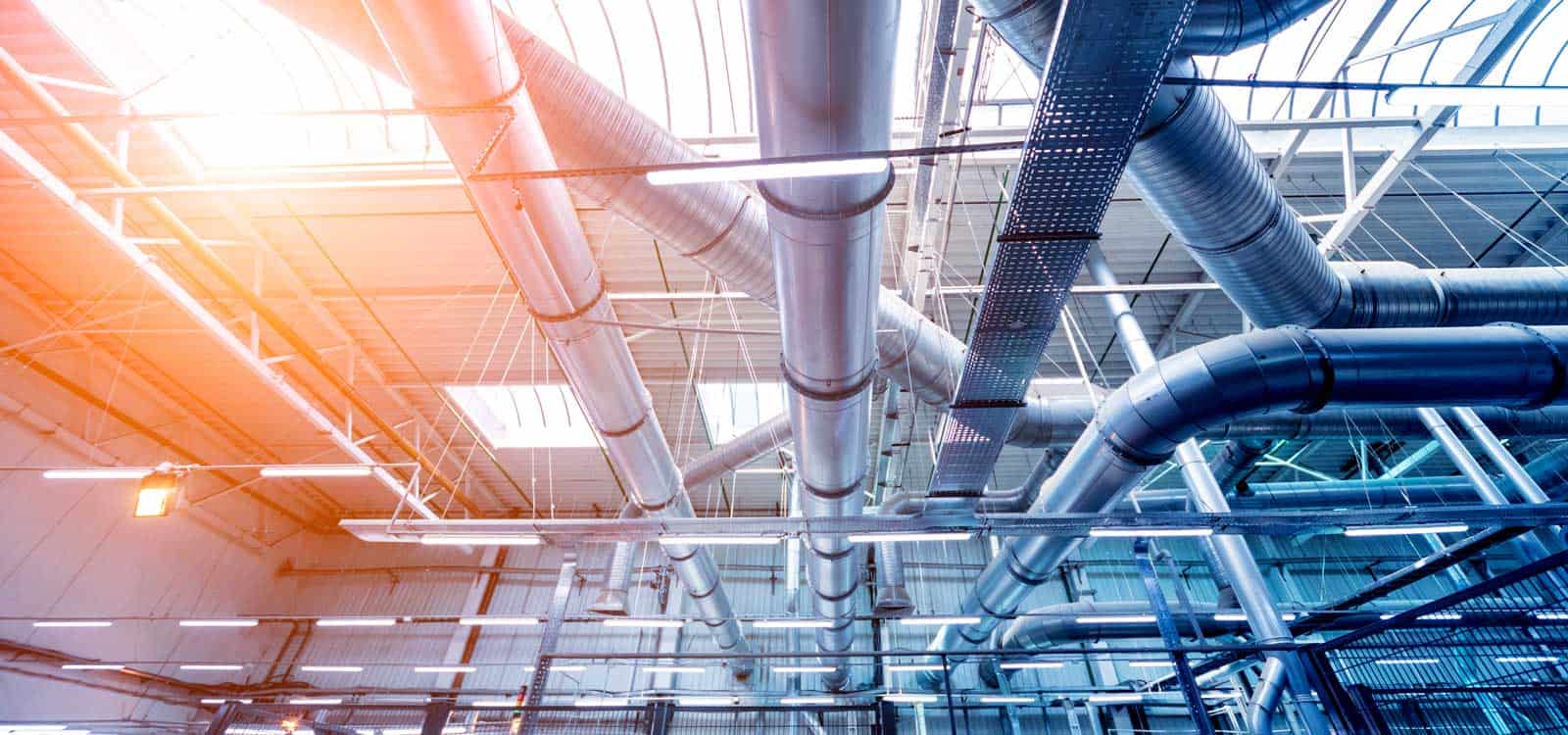Explore how HVAC experts help reduce energy bills significantly
Discovering the Essential Parts of a Reliable A/c System
A reliable heating and cooling system is constructed on a number of crucial elements that function in harmony. Each part, from the thermostat to the ductwork, plays a crucial duty in keeping comfort and power efficiency. Comprehending these components is important for enhancing performance and boosting interior air high quality. As one takes a look at these parts, the elaborate relationships between them disclose understandings right into enhancing general system effectiveness. What certain elements contribute most to this effectiveness?
The Function of the Thermostat in HVAC Efficiency

Although often forgotten, the thermostat plays a critical function in the effectiveness of HVAC systems. HVAC experts. This small tool acts as the key nerve center, regulating temperature settings and making certain optimal convenience within a space. By accurately sensing the ambient temperature, the thermostat connects with the air, heating, and ventilation conditioning units to maintain the wanted environment
An effective thermostat decreases power intake by triggering the heating and cooling system only when necessary, therefore stopping too much home heating or air conditioning. Modern smart and programmable thermostats enhance this effectiveness even more by permitting individuals to set schedules and from another location adjust settings, adjusting to daily regimens.
In addition, the placement of the thermostat is important; incorrect location can cause inaccurate temperature analyses, resulting in ineffective procedure. In general, a well-functioning thermostat not only improves convenience however additionally adds noticeably to power savings and the longevity of the a/c system.
Comprehending the Significance of Air Filters
Air filters offer a vital feature in heating and cooling systems by assuring that the air flowing within a space remains healthy and tidy. These filters catch dust, allergens, and various other contaminants, preventing them from being recirculated throughout the setting. By capturing these bits, air filters add to boosted interior air high quality, which can greatly benefit residents' wellness, particularly those with allergies or respiratory system problems.
Furthermore, maintaining clean air filters improves the performance of HVAC systems. Blocked filters can limit air flow, creating the system to work more difficult to maintain desired temperatures, leading to increased power intake and higher utility expenses. Frequently replacing or cleaning filters is a vital maintenance action that can extend the lifespan of HVAC tools. Ultimately, comprehending the importance of air filters permits home owners and building managers to take aggressive actions to guarantee a well-functioning, effective heating and cooling system that advertises a risk-free and comfy indoor setting.

The Capability of the Heating System and Heat Pump
Furnaces and warmth pumps are essential components of HVAC systems, in charge of supplying heat during chillier months. Furnaces run by home heating air through combustion or electrical resistance, after that distributing it throughout the home by means of ducts. They generally use fast home heating and can be sustained by gas, electricity, or oil, depending upon the system type.
Conversely, heatpump move warmth instead than generate it. They remove warmth from the outside air or ground, also in low temperature levels, and move it inside. HVAC experts. This twin functionality allows heatpump to additionally give cooling in warmer months, making them functional options for year-round climate control
Both systems need correct maintenance to guarantee efficiency and durability. While furnaces succeed in severe chilly, warm pumps can be helpful in modest climates. Understanding their unique capabilities help home owners in selecting one of the most ideal option for their home heating requires.
Checking Out the Cooling Device
The air conditioning unit is a crucial element of HVAC systems, readily available in numerous types to suit different demands. Understanding the performance scores of these systems is vital for making notified choices about power intake and expense. This section will discover the varied kinds of air conditioning unit and clarify exactly how efficiency scores influence performance.
Kinds Of Air Conditioners
While numerous aspects influence the choice of cooling systems, recognizing the different kinds readily available is vital for home owners and building supervisors alike. Central air conditioners are designed to cool entire homes or structures, utilizing a network of ducts for air flow. Window systems provide an even more local solution, suitable for little rooms or single rooms. Mobile a/c unit give versatility, enabling individuals to relocate the device as required. Ductless mini-split systems are an additional option, incorporating the efficiency of central systems with the ease of zoning, as they require no ductwork. Geothermal systems harness the planet's temperature for energy-efficient air conditioning. Each type comes with distinct benefits, making educated options essential for effective climate control.

Efficiency Rankings Described
Comprehending efficiency rankings is vital for choosing the ideal a/c system, as these metrics give understanding right into the system's performance and power consumption. One of the most typical rating for a/c is the Seasonal Power Effectiveness Proportion (SEER), which gauges the cooling output throughout a typical cooling period split by the total electrical energy input. A higher SEER suggests far better performance. Furthermore, the Energy Efficiency Proportion (EER) is made use of for gauging effectiveness under particular problems. An additional important metric is the Energy Celebrity qualification, which symbolizes that a device satisfies stringent power performance standards. By examining these ratings, consumers can make enlightened selections that not just maximize convenience however additionally decrease power prices and ecological influence.
The Value of Ductwork and Air flow
Effective ductwork style and air flow administration play important functions in the total efficiency and efficiency of HVAC systems. Proper ductwork warranties that conditioned air is dispersed evenly throughout a space, reducing temperature level fluctuations and improving convenience. Well-designed ducts reduce resistance to air flow, reducing the workload on a/c devices and ultimately decreasing energy intake.
Air flow administration includes purposefully read more placing vents and signs up to boost the flow of air. This stops usual concerns such as warm or cold places, which can occur when airflow is obstructed or inadequately well balanced. In addition, the right duct products and insulation can additionally improve efficiency by reducing warm loss or gain during air transit.
An effective ductwork system not just contributes to energy cost savings yet can additionally extend the lifespan of HVAC equipment by decreasing unnecessary stress (HVAC experts). Recognizing the relevance of ductwork and air flow is necessary for achieving peak Heating and cooling system performance.
Routine Upkeep Practices to Enhance Efficiency
Normal upkeep techniques are crucial for making certain peak performance of heating and cooling systems. These methods include regular assessments, cleansing, and needed repairs to keep the system running efficiently. Frequently transforming air filters is crucial, as clogged filters can obstruct airflow and minimize performance. Additionally, professionals should check and clean evaporator and condenser coils to stop overheating and energy wastage.
Annual professional assessments are also suggested, as skilled professionals can identify prospective issues prior to they escalate. Oiling moving components minimizes damage, adding to a longer life expectancy for the system. Furthermore, making sure that the thermostat functions correctly aids in maintaining perfect temperature control.

Often Asked Inquiries
Exactly how Often Should I Replace My Thermostat?
Thermostats should generally be replaced every 5 to ten years, depending upon use and modern technology improvements. Regular checks are suggested to ensure peak performance, specifically if experiencing inconsistent temperature control or raised power prices.
What Dimension Air Filter Is Best for My Heating And Cooling System?
The very best size air filter for a heating and cooling system differs by unit layout. Typically, it's important to speak with the owner's manual or inspect the existing filter dimensions to assure peak efficiency and air top quality.
Can I Install a Warmth Pump Myself?
Mounting a warm pump individually is possible for experienced people, yet it calls for knowledge of electric systems and local codes. Working with a specialist is suggested to ensure appropriate setup and excellent system efficiency.
Exactly how Do I Know if My Ductwork Is Effective?
To determine ductwork effectiveness, one ought to inspect for leaks, step air flow at vents, inspect insulation quality, and assess temperature level distinctions between supply and return air ducts. Expert evaluations can give extensive understandings right into total efficiency.
What Are Indicators My Heating And Cooling Demands Immediate Upkeep?
Signs that a cooling and heating system needs prompt upkeep consist of uncommon sounds, inconsistent temperature levels, raised power costs, undesirable smells, and regular biking. Resolving these issues quickly can avoid further damages and guarantee optimal system efficiency.
Air filters offer a crucial feature in HVAC systems by ensuring that the air flowing within a space continues to be clean and healthy. Furthermore, keeping clean air filters boosts the performance of A/c systems. Ductless mini-split systems are an additional option, incorporating the effectiveness of central systems with the ease of zoning, as they need no ductwork. Understanding effectiveness scores is important for selecting the right air conditioning unit, as these metrics offer insight right into the system's performance and energy consumption. The ideal dimension air filter for a Heating and cooling system varies by device style.